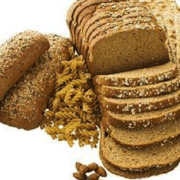Factories urged to supply non-toxic wastewater to farmlands
-
Recently Browsing 0 members
- No registered users viewing this page.
-
Topics
-
-
Popular Contributors
-
-
Latest posts...
-
83
Report Pattaya Motorbike Drivers Protest Strict Helmet Law Fines
Agree. But we should have it as law for kids on bikes. -
1
Carrying a cough syrup into Thailand
I think codeine is a controlled substance in Thailand, but I could be wrong. Does it have codeine? Even so, if it is a controled drug, , you might get away with 2 small bottles. -
194
Will Trump bankrupt the US entirely?
Did you? I seem to recall a good bit of hyperbole, but I and not going back looking for it. In any event, I'm willing to stipulate that that tariffs on importers wine hurt wine importers. Again, I am generally against tariffs. -
2
More EV car transporter ship on fire
Oh, another conspiracy! PS. Just out of curiosity, roughly how many ships carrying EVs start burning every year? -
289
Things you like about Thailand
Back home, eating out is expensive. Here's it's much cheaper (apart from some western places). Breakfast is 4 dollars compared to 20 dollars. Still not as cheap as cooking from home. But ... I am only eating one COOKED meal a day. I supplement with protein powder .... to reduce having to chase down too many cooked meals. Too much work to cook 3 times a day. Unless you really enjoy collecting all the ingredients and all the prep and cleaning involved. And a bit expensive to eat out 3 times a day too. -
1
Video Thailand PM Paetongtarn and Reporter Clash Amid Border Tensions with Cambodia
Maybe her advisors suggested she show a tougher side quickly, as she's being ridiculed as a puppet of her father, and so this was an opportunity to do so?
-
-
Popular in The Pub



.thumb.jpeg.d2d19a66404642fd9ff62d6262fd153e.jpeg)








Recommended Posts
Create an account or sign in to comment
You need to be a member in order to leave a comment
Create an account
Sign up for a new account in our community. It's easy!
Register a new accountSign in
Already have an account? Sign in here.
Sign In Now